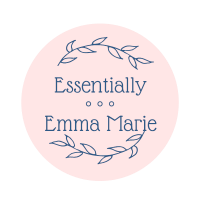We all love learning more about ourselves—yes, you know you do! But it can also be so overwhelming! There are so many books on the topic, ranging from the highly technical no-fun-to-read type, to the ones that are so general all you get is confused. There’s also the issue that reading a bunch of books just to learn more about yourself can feel selfish. What good does it do to know more about ourselves? Does learning about ourselves really help us interact with others better? Those topics and many more are discussed in the following books:
Disclosure
Please remember that this post contains affiliate links; that means if you click on the link, I will make a small commission at no extra cost to you. It’s a way to support my blog! I will only ever share an affiliate link if I love the product and think that you just might love it too!
Reading People
by Anne Bogel
I wasn’t sure how I would feel about this book but I really enjoyed it! I was afraid it would be a little too basic. I’m fairly familiar with a lot of the personality frameworks and I was afraid this would not quite reach deep enough for me. However, this book turned out to be an enjoyable overview/refresher of the different personality frameworks, as well as several I’m not very familiar with. I also learned that I might be a “highly sensitive person,” which is something new that I didn’t think I quite fit the bill of, but after reading more about it, I think I am a highly sensitive person—and boy that explains a lot!
If you are just starting to learn about the different personalities, this book is a great jumping off point and from there you can decide which framework you are most interested in learning more about!
The Four Tendencies
by Gretchen Rubin
The Four Tendencies is the only framework that I’m aware of (not that I am an expert by any means) that Anne Bogel did not mention in Reading People. While The Four Tendencies isn’t as recognized as the other frameworks, I think it is highly valuable as it is pretty easy to recognize the different types which makes it easier to learn how to interact with each type. This is a great book and should be mandatory reading for every office, as I think it would help solve a lot of conflicts—or at least show why these conflicts keep happening! I wrote a more in-depth post about The Four Tendencies; read that post here.
The Road Back to You
by Ian Morgan Cron and Suzanne Stabile
This book talks in depth about the Enneagram. The Enneagram is a personality framework that is a little more in-depth and complicated than some of the others; it sheds much valuable insight into why we act the way we do, and what we are looking for with these actions. It talks about what each of the numbers that represent the personality types look like (there are nine main types) and what each of these types looks like when they function out of a healthy place vs an unhealthy place. This book will help you to identify which type you are and help you realize what you need to do to become emotionally healthier in that place.
The Five Love Languages
by Gary Chapman
What makes you feel loved might not make someone else feel loved and if you don’t understand how to make someone close to you feel loved, then they may doubt that you do in fact love them. In this book Gary Chapman details the five different ways that people perceive love. Everyone is a combination of languages but you will have a primary love language, as Chapman calls it. If you are not familiar with The Five Love Languages, I would get your hands on this as soon as possible—your relationships are bound to improve as a result.
